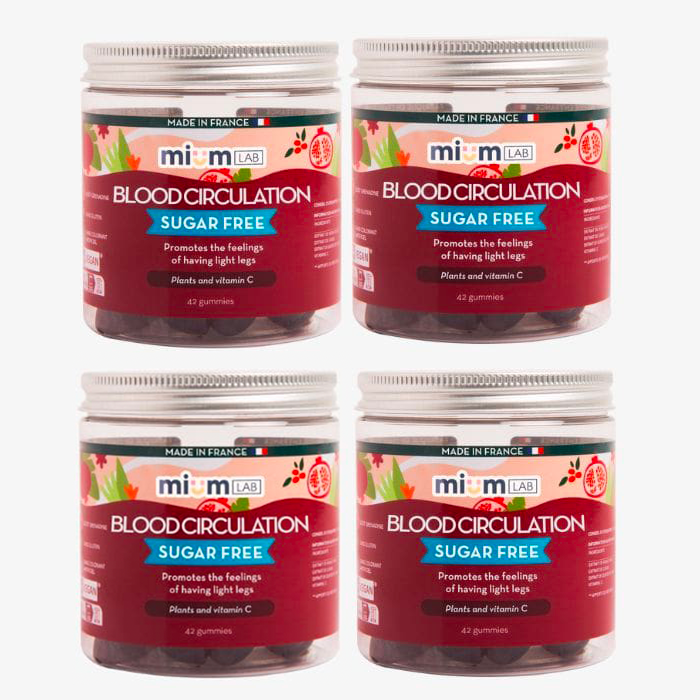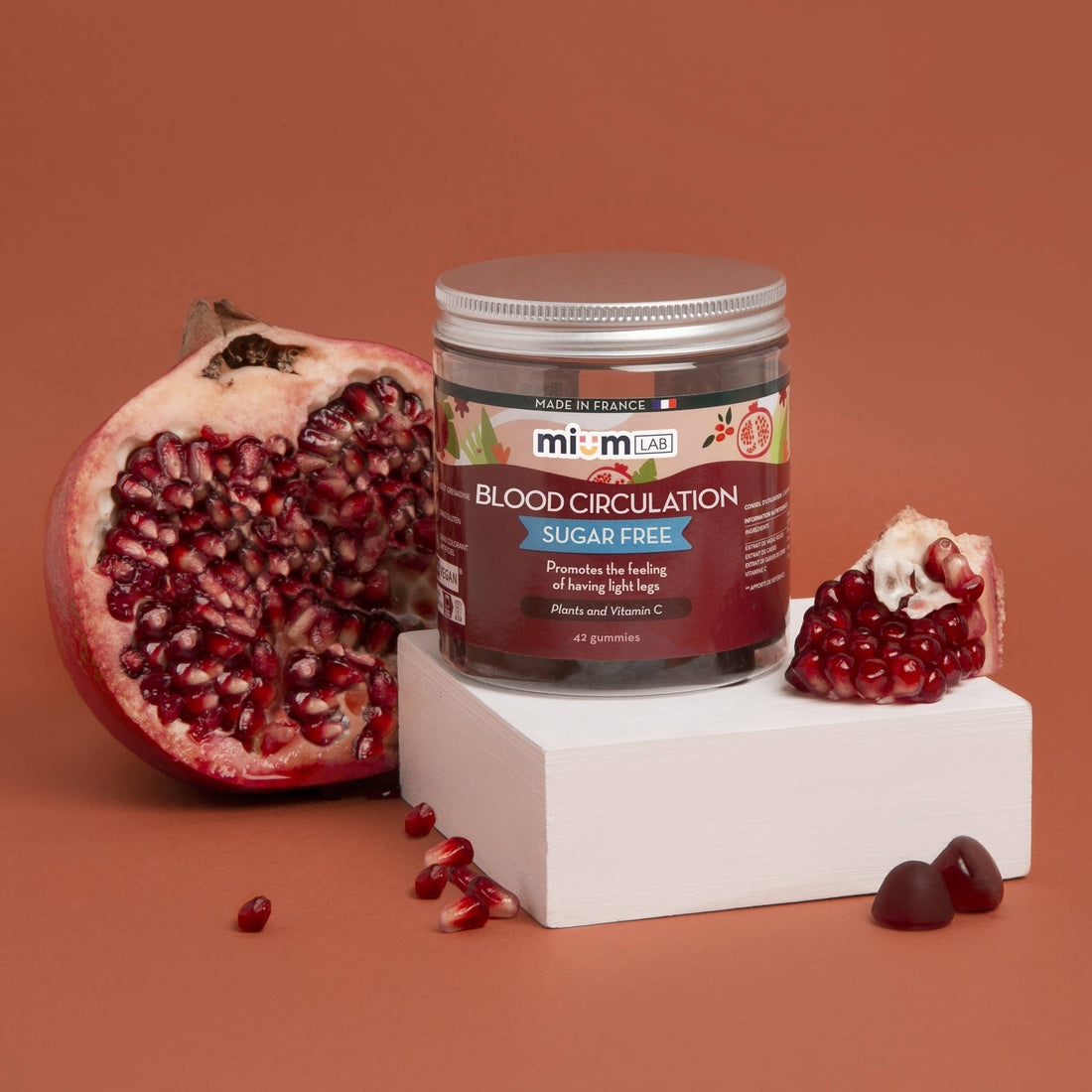Blackcurrant: a superfruit for improving blood circulation
Blackcurrant (Ribes nigrum) is a small black fruit highly valued for its numerous medicinal virtues. Extremely rich in vitamins, antioxidants, and minerals, blackcurrant is particularly recognised for its benefits on blood circulation and vascular health. Its high content of polyphenols, especially tannins (proanthocyanidins) and pigments (anthocyanins), provides protective effects on the vascular and visual systems.
5 benefits of blackcurrant on blood circulation
Blackcurrant is a true treasure trove of beneficial nutrients for the body, especially for blood circulation. Here are some of its main benefits:
1) Reduction of water retention
Blackcurrant has natural diuretic properties that help reduce water retention. By promoting the elimination of excess body fluids, it helps reduce swelling and prevent the sensation of heaviness in the legs.
2) Light legs sensation
Blackcurrant promotes a feeling of light legs by improving blood circulation. The polyphenols in blackcurrant, such as proanthocyanidins, work to strengthen the walls of blood vessels and improve their elasticity, facilitating blood flow and reducing the sensation of heavy legs.
3) Improved capillary permeability
Polyphenols help strengthen capillary walls, reducing permeability and the risk of swelling. This allows for better distribution of oxygen and nutrients to the cells, promoting overall tissue health.
4) Vein tonicity
Blackcurrant helps maintain vein tonicity, contributing to better venous circulation. The anthocyanins in blackcurrant are particularly effective in reducing inflammation and improving vein function, thus enhancing blood circulation.
5) Blood fluidity
The antioxidants in blackcurrant improve blood fluidity, helping to prevent hypertension and reduce the sensation of heavy legs. By thinning the blood, blackcurrant helps prevent blood clot formation and maintain healthy blood pressure.
Studies and research on the active principles of blackcurrant
Scientific research has highlighted the multiple benefits of blackcurrant, particularly on blood circulation. Here are some notable studies:
Study on the vascular effects of blackcurrant
Study objective
This study aimed to evaluate the effects of blackcurrant polyphenols on vascular health, particularly on capillary permeability and vein tonicity.
Methodology
Participants consumed a blackcurrant extract for 12 weeks. Measurements of capillary permeability, venous tonicity, and blood fluidity were taken before and after the intervention.
Results
- Improved capillary permeability: Participants showed a significant reduction in capillary permeability, meaning less swelling and better tissue health.
- Increased venous tonicity: A notable improvement in vein tonicity was observed, contributing to better venous circulation and reduced symptoms of heavy legs.
- Improved blood fluidity: Participants showed better blood fluidity, reducing the risk of clot formation and improving blood pressure.
Study on the benefits of blackcurrant buds
Study objective
This study aimed to examine the effects of blackcurrant buds on circulatory health and the reduction of water retention.
Methodology
Participants consumed a blackcurrant bud extract daily for 8 weeks. Parameters of water retention and blood circulation were evaluated.
Results
- Reduction of water retention: Participants reported a significant decrease in water retention, with reduced leg swelling and an increased sensation of lightness.
- Improved blood circulation: A notable improvement in blood circulation was observed, helping to reduce the sensation of heavy legs and improve vein tonicity.
Dosage of Mium Lab circulation gummies with blackcurrant
Our sugar-free circulation gummies, made with blackcurrant extract, allow you to benefit from the circulatory properties of this fruit. For optimal results, it is recommended to consume 2 gummies per day. These gummies contain a balanced concentration of blackcurrant active principles, specially formulated to support blood circulation and reduce the sensation of heavy legs.
Precautions and side effects of blackcurrant
Blackcurrant is generally well tolerated and does not present major contraindications. However, caution is advised for pregnant or breastfeeding women as a precaution.
About blackcurrant
Blackcurrant is one of the richest fruits in vitamin C, containing four times more of this vitamin than oranges. Used for centuries, it is appreciated not only for its taste qualities but also for its numerous health benefits. In ancient Egypt, it was used for its medicinal virtues and to ward off evil spirits. Its use has continued through the ages, making blackcurrant an essential fruit in traditional healing practices.






